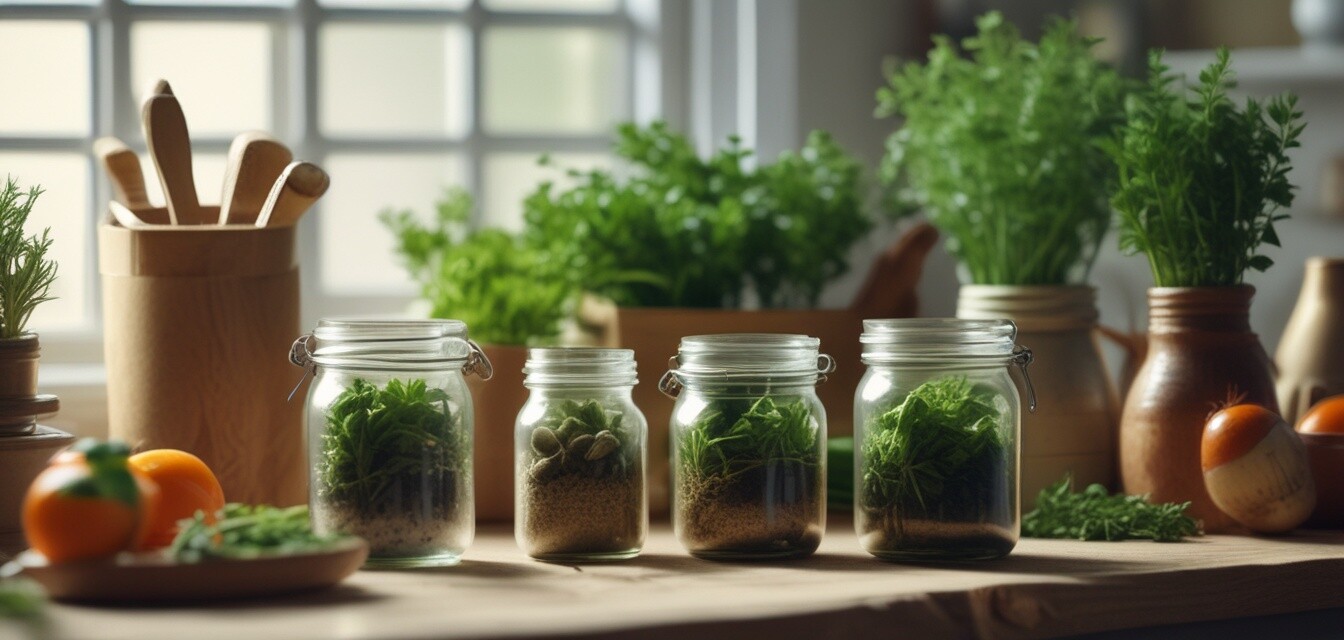
Simple DIY Natural Remedies You Can Make at Home
Key Takeaways
- Creating DIY natural remedies can be simple and rewarding.
- Everyday ingredients can be turned into effective remedies for common health concerns.
- Understanding the basic principles of herbal remedies enhances your overall wellness.
- Ensure to follow safe practices while preparing and using natural remedies.
- Incorporate these remedies into your routine for a healthier lifestyle.
Making your own natural remedies at home can save you money and give you a sense of accomplishment. This article will guide you through some straightforward recipes using common ingredients you probably already have in your kitchen. Whether you're looking for soothing teas, skin treatments, or household products, these DIY remedies are both practical and effective.
Why Choose DIY Natural Remedies?
Opting for DIY natural remedies allows you to take control of your health and well-being. Here are some reasons why you might consider making your own remedies:
- Cost-effective solutions for common ailments.
- Ability to customize ingredients to suit your preferences and needs.
- Greater awareness and understanding of what you're putting into your body.
- The satisfaction of using natural, eco-friendly options.
Essential Ingredients for DIY Remedies
Before diving into recipes, it's helpful to know which ingredients you'll often use. Below is a table of essential ingredients and their uses:
| Ingredient | Common Uses |
|---|---|
| Honey | Natural sweetener; soothes sore throats. |
| Lemon | Rich in vitamin C; good for detoxifying. |
| Ginger | Supports digestive health; anti-inflammatory. |
| Turmeric | Anti-inflammatory benefits; enhances skin health. |
| Apple Cider Vinegar | Supports digestion; natural cleanser. |
Simple Recipes for DIY Natural Remedies
1. Soothing Herbal Tea
This tea is perfect for calming your nerves and promoting relaxation!
- Take one teaspoon of dried chamomile or peppermint.
- Boil water and add the dried herbs.
- Let it steep for 5-7 minutes.
- Strain and enjoy, optionally adding honey for sweetness.
2. All-Natural Face Mask
Give your skin a refreshing boost with this simple face mask.
- Mix one tablespoon of honey with one tablespoon of plain yogurt.
- Add a few drops of lemon juice.
- Apply to your face and let it sit for 15-20 minutes.
- Wash off with warm water.
3. Ginger and Turmeric Smoothie
Try this vibrant smoothie for a powerful nutrient boost!
- Blend one banana, one cup of spinach, a small piece of ginger, and a dash of turmeric.
- Add one cup of almond milk or yogurt.
- Blend until smooth and enjoy!
4. Herbal Infused Oil
This oil can be used for massage or as a carrier oil for essential oils.
- Fill a jar with a mix of herbs like lavender and rosemary.
- Cover the herbs with olive oil and seal the jar.
- Let it sit in a warm place for two weeks, shaking occasionally.
- Strain and store the oil in a dark bottle.
Best Practices for Making Natural Remedies
While creating natural remedies is rewarding, adhering to best practices is essential:
- Always use clean containers and utensils.
- Label your creations with ingredients and dates.
- Perform a patch test if using on your skin.
- Research herbal ingredient interactions to ensure safety.
- Consult with a healthcare professional if uncertain about ingredients.
Storing Your DIY Remedies
Proper storage of your natural remedies is crucial for longevity:
- Keep oils and liquids in dark glass containers to protect from light.
- Store herbal remedies in a cool, dry place.
- Use remedies within a reasonable time frame to ensure effectiveness.
Conclusion
With just a few simple ingredients and some creativity, you can create effective natural remedies at home. Embracing these DIY methods not only supports your health, but also encourages a mindful approach to self-care and wellness. For additional insights on health and beauty products, consider exploring our Expert Tips and Advice section.
Tips for Beginners
If you are new to making natural remedies, here are some essential tips:
- Start with simple recipes that require minimal ingredients.
- Keep a journal to track what works best for you.
- Join online communities or forums for sharing experiences and tips.
- Don’t hesitate to experiment, but do so cautiously.
Pros
- Control over ingredients used.
- Cost savings compared to commercial products.
- Customization for personal preferences.
- Promotes eco-friendliness.
Cons
- Time-consuming to prepare.
- Knowledge of safe herbal practices is necessary.
- Results may vary from commercial alternatives.
- Storage and shelf-life concerns.
Explore More
For more information regarding herbal supplements and superfoods, visit our products section. Discovering the power of natural ingredients can truly enhance your well-being!
